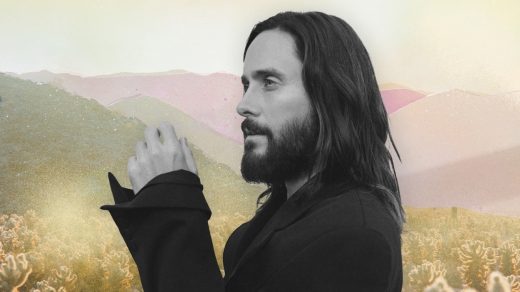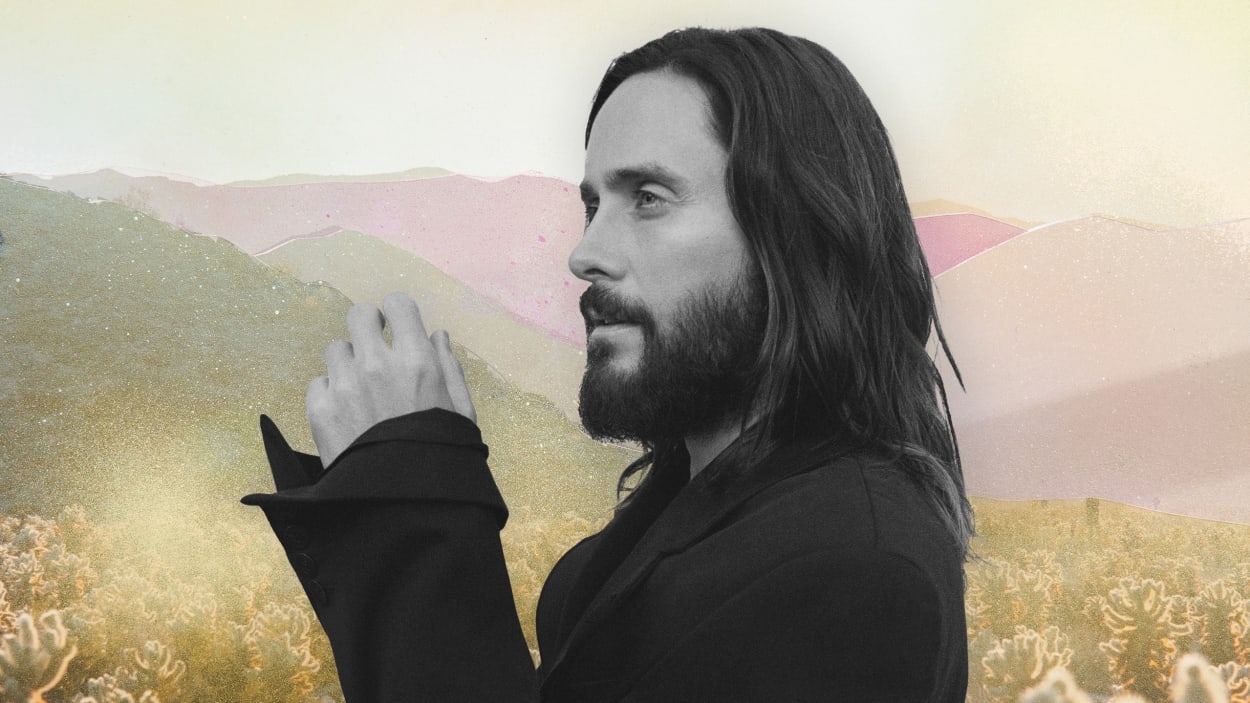Jared Leto breaks into the beauty business
In the 30 years since he first graced our screens in the early-1990s, Jared Leto has been repeatedly asked to divulge the secret to his youthful complexion. As it turns out, the answer is fairly straightforward: great genes, self-care, and plenty of sleep.
“People ask me those questions all the time,” Leto tells Fast Company ahead of launching Twentynine Palms, his new skin-care-focused creative brand, which debuts online and at Dover Street Market locations on October 25. “I have to thank my mother for not only what she gifted me biologically but also for teaching me to be mindful about taking care of myself and the importance of good sleep. She set a great example.”
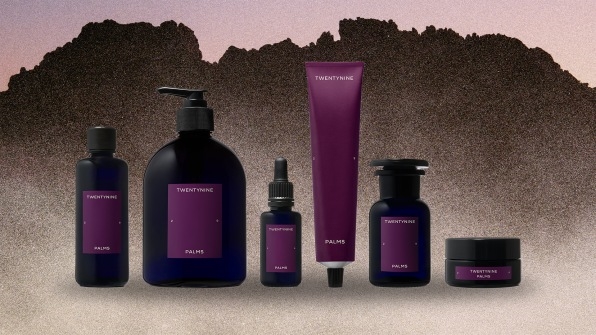
From an early age, the actor and musician was exposed not only to creative expression—growing up in what he calls an “art communal hippie experience”—but also curiosity and business acumen. Leto’s ensuing career struck the perfect balance between art and commerce—in addition to his lengthy résumé of award-winning, go-for-broke performances, the last 12 years have seen him amass an impressive early-stage investment portfolio that reads like a who’s who list of groundbreaking startups, including Nest, Slack, Airbnb, Spotify, Uber, Lime, Blue Bottle Coffee, and Suja, just to name a few.
“I approach these things as a problem solver. I grew up with a mom that was very independent, very entrepreneurial, and an intuitive person—she was an artist, but also a small business owner and a creative self-starter,” the Gucci muse says, tucking a lock of dip-dyed pink hair behind one ear. “That was informative and crucial. I’m similar in that I’m a creative person, first and foremost, but I’m also really entrepreneurial. I’m a small business owner. I’ve always tried my best to be as independent as possible and to solve problems using creativity or my entrepreneurial instincts. It’s been rewarding and serves me well, and I’ve carried that with me into my life as an investor.”
In spite of his busy schedule, Leto says he is always on the lookout for emerging companies whose goals are to fundamentally change how people work and live their lives.
“The connective tissue is that they all have really visionary founders who had, to use a dirty word, disruptive ideas,” says Leto, who embodied disgraced WeWork cofounder Adam Neumann for the Apple TV miniseries WeCrashed earlier this year. “I certainly wouldn’t have had as much insight into the role if I didn’t understand business and had I not had the experience of working with so many founders and watching companies go from having six employees to 60,000 in some cases.”
As the front man of 30 Seconds to Mars, Leto also sees a correlation between rock star and business leader.
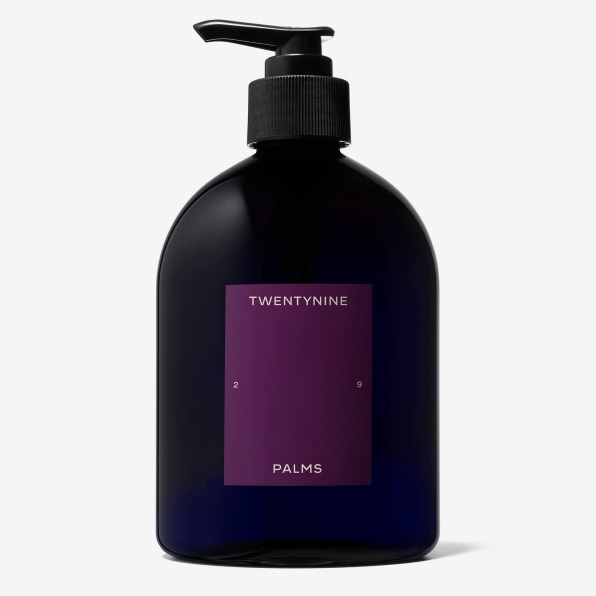
“I wouldn’t have been able to stand in Adam’s proverbial shoes, or lack of shoes, if I hadn’t been on the road touring for so many years,” he explains. “Adam was a performer. He was a bit of a rock star. He was great in front of so many audiences around the world.”
Now Leto himself is set to disrupt the retail product space as he dives headfirst into the saturated waters of celebrity skin care. While a fragrance license used to be the big one-and-done move for famous faces, today, as wellness and beauty trends surge on social media, so does a sea of full-scale celebrity brands. This year alone saw the launch of beauty brands by Naomi Osaka, Ciara, Scarlett Johansson, Hailey Bieber, and Kim Kardashian, as well as an uptick of men’s ranges from famous faces including Idris Elba, John Legend, Travis Barker, and Brad Pitt.
When asked if he is concerned about entering an overly crowded market, Leto is confident Twentynine Palms will find its place.
“We could all spend our entire lives asking these questions: ‘Oh, should I be a musician?’ There are so many other bands out there. ‘Should I be a writer? There are so many other writers.’ ‘Should I have a magazine?’ There are so many other magazines,” he says. “There’s a different question to ask, like how passionate am I about this? How exciting is this? What are the possibilities here? What could I learn from this? How challenging is this? Those are the questions we asked one another when we started Twentynine Palms.”
Leto created Twentynine Palms in collaboration with Jonathan Keren after discovering Keren’s own Maapilim skin-care line. Together, the duo enlisted Kate Forbes, previously the longtime global director of innovation at Aesop, to help create an initial drop of 11 vegan and cruelty-free products designed for the body, face, and hair, alongside a limited-edition scarf featuring artwork by Douglas Mandry.
“I wasn’t looking to start a brand. It happened organically. I was considering investing in Maapilim,” says Leto, “They wanted to break new ground, and they were infectious in their enthusiasm. I thought it sounded like a risky undertaking. So, it was probably the right one!”
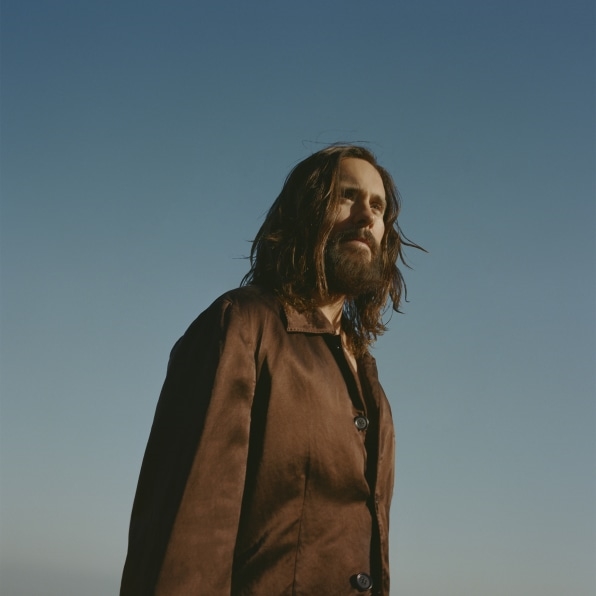
Twentynine Palms products were developed with a heavy emphasis on hydration, and are designed to work within a customer’s existing daily skin-care ritual. The brand’s namesake city serves as the main entry point to Joshua Tree National park—and also provided inspiration for a clear entry point to product development. For Leto, who lives in the Mojave Desert when he’s not shooting, Twentynine Palms is where he first learned to meditate.
“It’s important to have a central muse that connects every facet of the brand—which in our case, is Joshua Tree,” Keren says. “Twentynine Palms bottles up the magic of that place. The desert is fascinating because only the strongest survive in terms of the plants and animals out there. But, overall, things must be resilient in extreme drought and extreme weather. That resilience is essential to how we’re building our products.”
Harnessing the landscape’s “hallucinogenic beauty,” the team used the area’s indigenous ingredients, such as prickly pear extract, the fatty-acid-rich oils of amaranth plants, evening primrose, and other drought-tolerant species willing to thrive in arid settings.
“There were also challenges along the way with the formulations as we created quite a strict ‘no list’ for ingredients that we wanted to avoid for safety or environmental reasons,” says Forbes , noting that sustainability was top of mind. “The performance and safety of a product formula is mandatory, but the sensory aspect of scent, texture, and design plays an equally important role.”
Further grounding the brand is an endowment program and a long-term partnership with the Joshua Tree-based High Desert Test Sites, a nonprofit experimental arts organization and residency cofounded in 2002 by artist Andrea Zittel.
Leto and Keren plan to ultimately expand Twentynine Palms to include fragrance, home goods, and design objects, created in collaboration with a rotating list of multidisciplinary artists. Starting small gives the burgeoning brand room to breathe and shapeshift along the way.
“It’s essential to listen and learn. That’s something I’ve also learned from working with tech companies,” Leto says, noting that Slack was initially a video game company and Robinhood was a high-frequency trading application. “It’s important to be nimble and to listen and learn and to be able to apply that to what you do next.”
(20)

